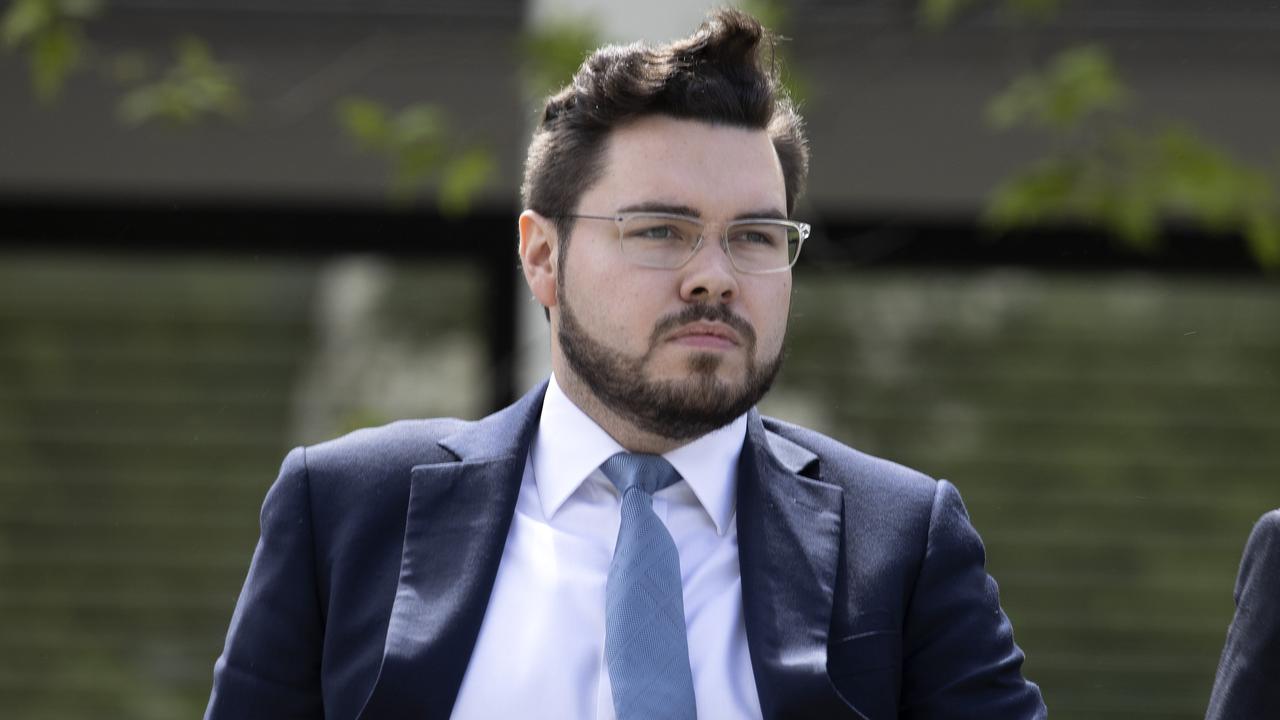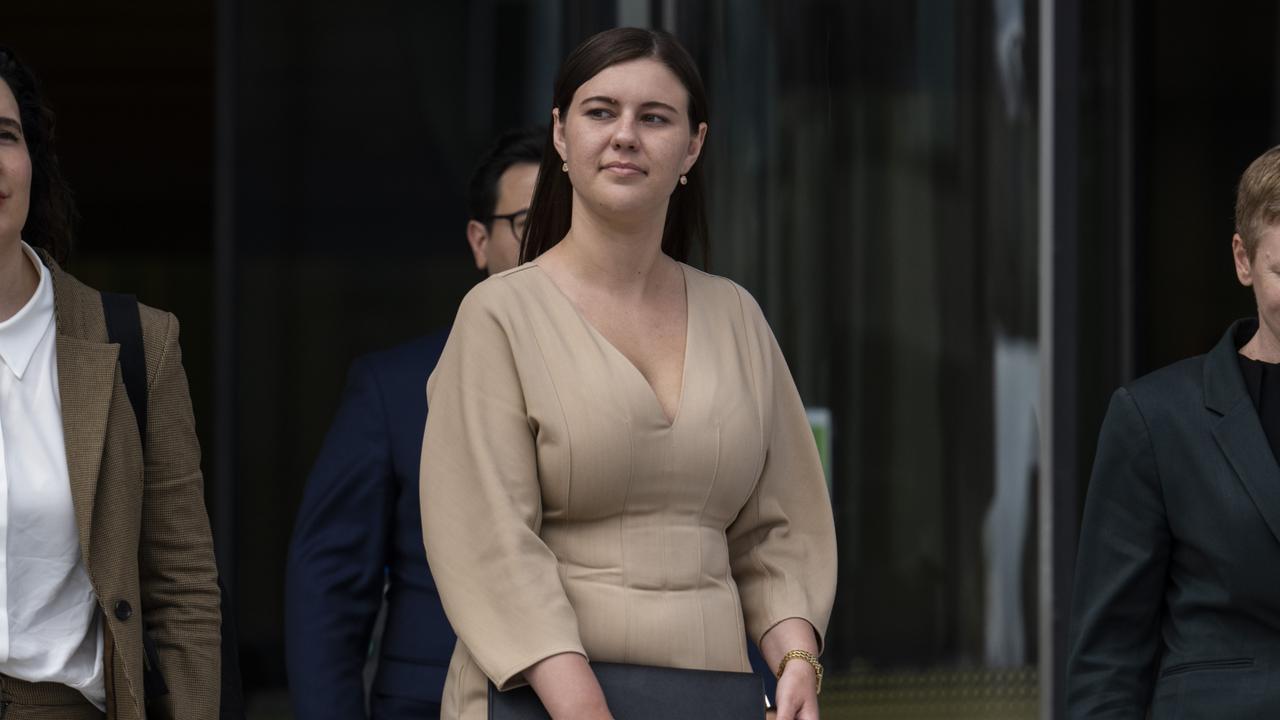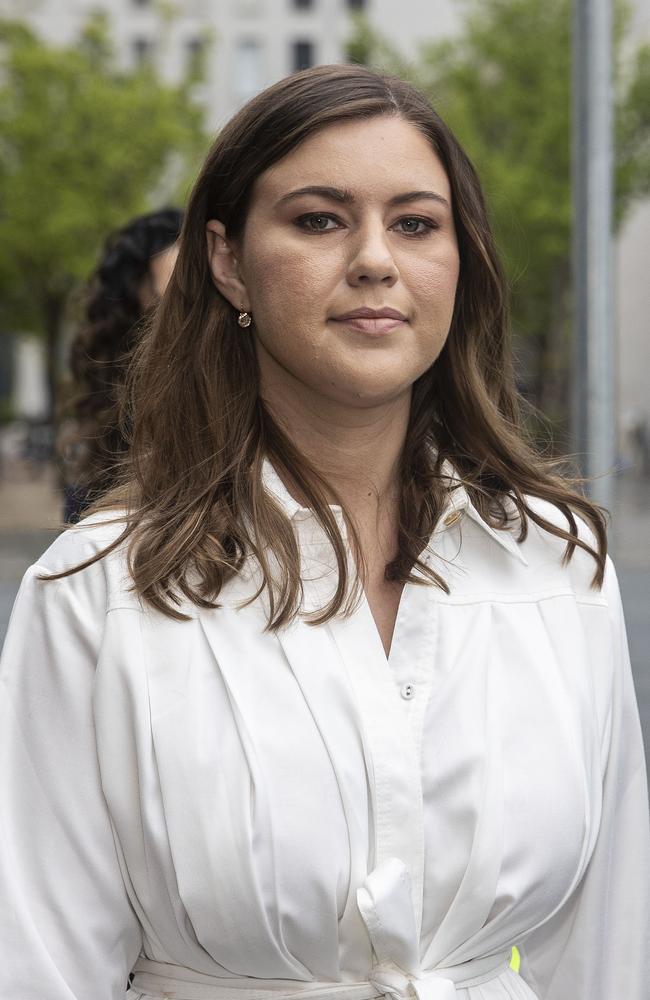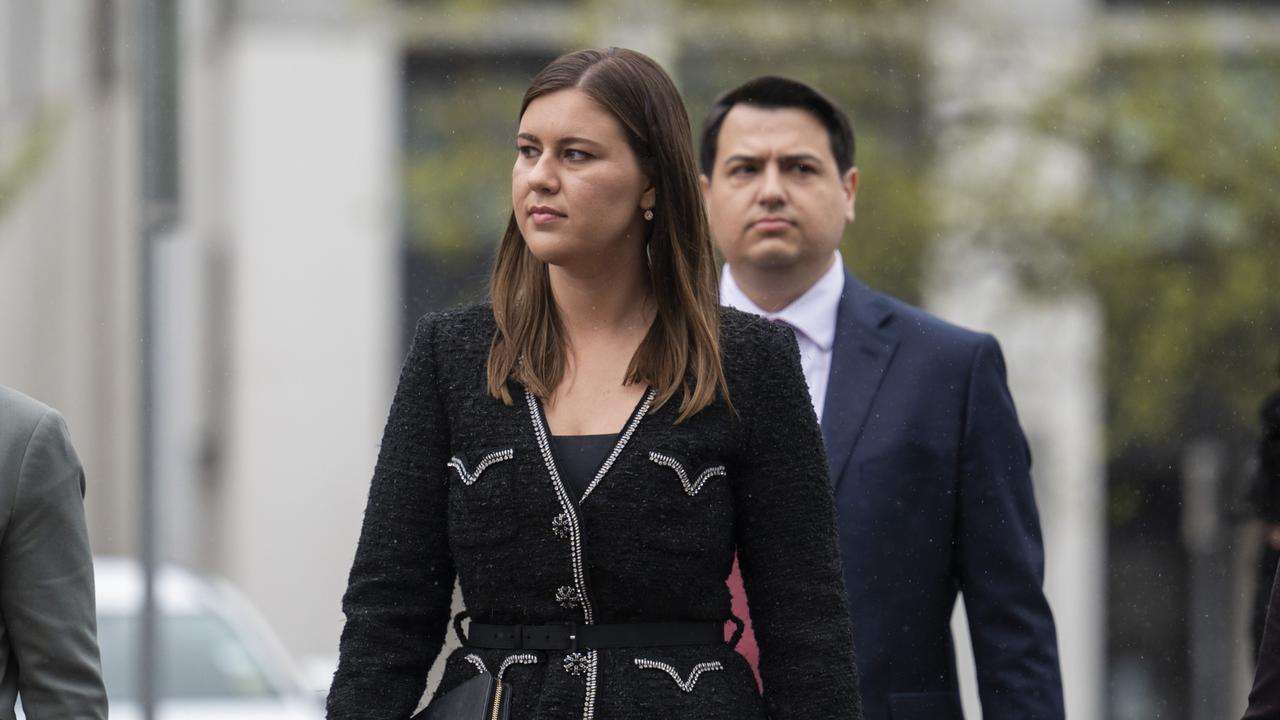New trial date set for February 2023 after jury discharged in trial of Bruce Lehrmann, accused of raping Brittany Higgins
The jury in the trial of the man accused of raping Brittany Higgins has been discharged. Here’s what will happen next.
The jury in the trial of Bruce Lehrmann, the man accused of raping Brittany Higgins in Parliament House, has been discharged. So what happens now?
Chief Justice Lucy McCallum has set the date of the new trial for February 20, 2023, setting out strict conditions for Mr Lehrmann before the court.
He is not allowed to contact Ms Higgins, her partner David Sharaz, or her parents Kelly Higgins and Matthew Higgins, and must advise the AFP of his residential address.
If Mr Lehrmann decides to travel overseas during this time he must also provide his itinerary to the AFP two weeks prior to his travel.
Mr Lehrmann is accused of raping Ms Higgins in Linda Reynolds’ ministerial office at Parliament House after a night out drinking with work colleagues in March 2019.
Mr Lehrmann, 27, has pleaded not guilty to sexual intercourse without her consent and being reckless to her consent, in the early hours of 23 March, 2019. He denied ever having sex with Ms Higgins.


Jury discharged after act
Chief Justice McCallum discharged the jury in the trial for the man accused of raping Brittany Higgins in Parliament House on Thursday morning.
“It has come to my attention that one of you has, contrary to directions, undertaken research in relation to an issue in the case,” the judge said.
“That material has entered the jury room which ought not to have.
“I have had an explanation and it may be no harm has been done but that is a risk I can’t take.”
Chief Justice McCallum told the jury that juror had been discharged and she had made the decision to now discharge the rest of the group as well.
“Sometimes there is a mishap which…results in a miscarriage of a trial. That’s what’s happened here.”
ACT verdicts must be unanimous
The ACT has no judge-only trials and as such the matter cannot be heard by a judge alone.
In some high-profile cases the courts decide that a matter should be heard by a judge alone to address these issues.
However, that is not possible in the ACT that required special legislation even to allow for judge-only trials during Covid lockdowns.
Unlike most jurisdictions, the ACT also requires a unanimous verdict for guilty and not guilty.
That means that even a clear majority of jurors who believe someone is not guilty or not guilty is not enough. The verdict must be unanimous.

Jury’s notes to judge after earlier deliberations
The jury informed the judge on Tuesday, October 25, that they had been unable to reach a decision in the trial for the man accused of raping Brittany Higgins in Parliament House.
The court reconvened just after 3pm after the jury sent a new note to ACT Supreme Court Chief Justice McCallum.
“You have told me in a note you are unable to reach a unanimous verdict,” she told the jury.
Chief Justice McCallum said that experience has shown juries can “often reach a verdict if given more time”.
She directed the jury to go back out and continue their deliberations to see whether they can reach a unanimous agreement.
About 10 minutes after the jury were directed to continue their deliberations, the group informed the judge they wished to go home and return on Wednesday morning.
“Members of the jury, I have been told you would like to go home now and return tomorrow with fresh minds,” Chief Justice McCallum said.
“I do want to thank you for your continuing handwork and to remind you, as I have many times, if there is anything I can do to help you or support you … please let me know.”
She urged the jury members to do whatever they needed to have respite from the “arduous task” facing them, suggesting they “hit the gym” or “walk the dog”.

Judge’s message to jury
The court heard that the Judge has the power to discharge the jury from giving a verdict but should only do that if after examining one or more of the jurors she is satisfied that they are not likely to agree.
“That means there is no likelihood of genuine agreement after any further deliberations,” Chief Justice McCallum said.
The jury were told the only expectation of them is that they remain true to their oath and to consider the evidence fairly.
She also reminded the group they have a duty to listen carefully to the arguments of the other jury members.
“You are all equals in the jury room,” she said.
Chief Justice McCallum said members of the jury may take different paths that lead them to the same conclusion.
“I remind you of the direction I gave you in my summing up, your verdict, guilty or not guilty, must be a unanimous one,” she said.
The jury, which is made up of eight women and four men, have been deliberating since last Wednesday.
At 10am on Monday the court reconvened after the jurors sent a note to ACT Supreme Court Chief Justice McCallum to inform her they needed more time.
“We have not yet reached an agreement of beyond reasonable doubt,” the note, which was read out before the court, said.
Chief Justice McCallum said the jurors had asked the court for a “little extra time” to complete their deliberations.
In her response, the Judge told the jury that there was “no time expectation” placed upon them and they should “take all the time you need”.
She noted that she had seen juries deliberate for considerably longer than this group had been.
“There is no rush, there is no time limit,” she said, adding the jurors should remain true to their oath to give a “true verdict according to the evidence”.





